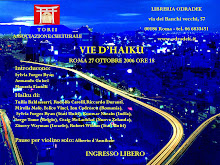 "In their song, which they call the yoik, one cannot discern any particular art at the first hearing, and one is tempted to believe that they are crying rather than singing. However, it does not sound quite so bad when one listens to them without prejudice." [P. Hogstrom, 1747]
"In their song, which they call the yoik, one cannot discern any particular art at the first hearing, and one is tempted to believe that they are crying rather than singing. However, it does not sound quite so bad when one listens to them without prejudice." [P. Hogstrom, 1747]A possible understanding of the Sami yoik, "the most ancient and original form of music that exists within the boundaries of Europe" according to Ernst Emsheimer, lies in the light of its function in Sami society.
"There are no rhymed ends, but they repeat the same words often and in many ways, whereby a subject of no value can become both important and pleasant. To that end, namely as regards the repetition of the words, I cannot give a closer example than Deborah's Song in the Book of Judges." [P. Hogstrom, 1747]
All the people listening to the yoik in its original environment had common experiences of the places described or of the persons referred to. This means that it was only necessary to hint at what was intended by means of certain words or short sentences. Sometimes just the music was enough. The wordless syllables would give the listener free associations where each person could insert own experiences and feelings related to the object of the yoik:
"To live meant to exist in relation to other people. As long as someone was remembered and as long as those who survived him/her thought about and continued to remember him/her, that person continued to remain alive. The person who was forgotten and lacked human relations was regarded as dead - even though his/her heart still continued to beat." [R. Kjellstrom]
In situations where people knew each other, as sharing the same environment and milieu, it was habitual for common memories to be also shared on the occasion of gatherings. After being composed, a yoik was often learnt by others, eventually becoming the common property of all the community...



No comments:
Post a Comment